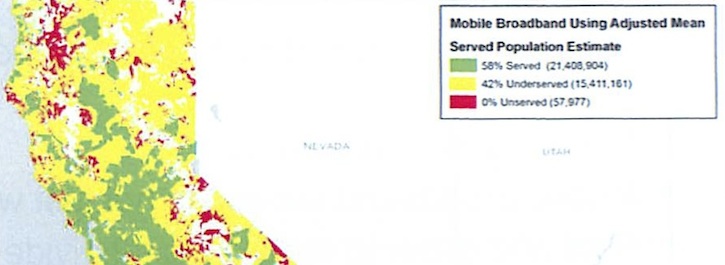Mobile carriers say their broadband isn't very fast, so FCC sets lower standard

The Federal Communications Commission is on a mission to slow down broadband in rural areas. Or at least protect incumbents who don’t invest in their networks in rural markets where competitive options are few to non-existent.
The latest move approved by commissioners sets a low bar for mobile broadband service. Similar to its Connect America Fund program that subsidises fixed, mostly wireline service in communities with sub-standard Internet service, the FCC administers the Mobility Fund for mobile carriers.… More




![Rico Shen [GFDL (https://www.gnu.org/copyleft/fdl.html), CC-BY-SA-3.0 (https://creativecommons.org/licenses/by-sa/3.0/) or CC-BY-SA-2.5-tw (https://creativecommons.org/licenses/by-sa/2.5/tw/deed.en)], via Wikimedia Commons](https://www.tellusventure.com/blog/images/2014/9/mobile_phone_brick.jpg)


![By Jaredcreech at en.wikipedia (Transferred from en.wikipedia) [Public domain], from Wikimedia Commons](https://www.tellusventure.com/blog/images/2014/10/old_dog.jpg)
![By Kander (Own work) [Public domain], via Wikimedia Commons](https://www.tellusventure.com/blog/images/2014/10/carrot.jpg)